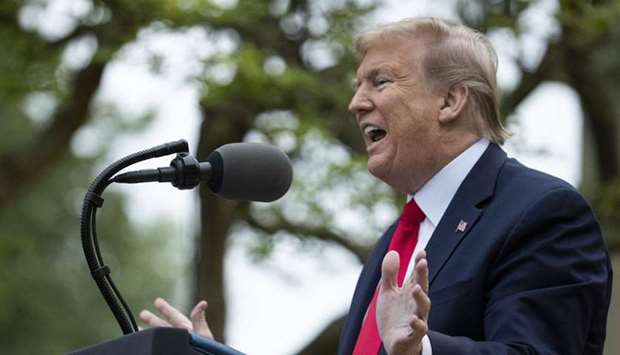What is the World Health Organization’s remit?
The World Health Organization (WHO) was founded as the UN global health body in 1948 in the aftermath of the Second World War with a mandate to promote global health, protect against infectious disease and to serve the vulnerable. It was inspired by the international sanitary conferences of the 19th century set up to combat communicable diseases such as cholera, yellow fever and plague.
Its current programme envisages expanding universal healthcare to a billion more people, protecting another billion from health emergencies and providing a further billion people with better health and well-being.
What does that involve?
In practical terms, the badly underfunded WHO acts as a clearing house for investigation, data and technical recommendations on emerging disease threats such as the coronavirus and Ebola. It also supports eradication of existing diseases such as malaria and polio and promotes global public health.
While its role on emerging diseases is most familiar in the developed world with its more resilient healthcare systems, its practical involvement is far more marked in the global south, where it has been working to expand basic healthcare, support vaccination and sustain weak and often stressed health systems through its emergencies programmes. Its 2018-9 budget was $4.8bn, which became $5.7bn when emergencies were included.
Why is the WHO under fire from Trump?
Trump has presented the freezing of US funding to the WHO as a direct response to what he claims was its slow reaction in raising the alarm over the global threat from the coronavirus and being too “China-centric” in its response. But the organisation’s funding was already in his sights on 7 February, when his administration was suggesting cutting the US contribution, about $400mn annually, by half as part of $3bn cuts to US global health funding across the board.
The WHO, to whom the US theoretically contributes roughly 10-15% of its budget as its largest contributor, has been appealing for an extra $1bn to help fight the coronavirus.
The allegation by Trump and his supporters that the WHO was slow to warn of the risk of human-to-human transmission, and that it failed to cross-examine Chinese transparency early on, is largely not borne out by the evidence. WHO technical guidance issued in early January was warning of the risk of human-to-human transmission and the organisation declared coronavirus a public health emergency of international concern a day before Trump announced his partial ban on flights from China.
Instead, it appears Trump is following a familiar playbook: finding others to blame amid his own handling of the coronavirus outbreak, which has included calling it the “Chinese virus”, blaming the previous Obama administration and taking aim at state governors.
How does the WHO’s performance in the coronavirus crisis compare with the 2014-15 Ebola outbreak?
The WHO, under the then-director general, Margaret Chan, was savaged from all sides for responding so slowly to an Ebola outbreak that began in a remote forested part of Guinea where the borders with Sierra Leone and Liberia were virtually non-existent. By the time the WHO acted, six months late, it had reached the dense cities.
The fallout for the WHO was serious and undermined its credibility. US critics suggested scrapping it and setting up a new global public health body, although the idea did not take off and President Obama did not support it.
An independent report commissioned by Chan said the WHO’s funding was inadequate and governments had not increased their contributions in years.
Dr Tedros Adhanom Ghebreyesus, the current director general, and all other candidates for the role after Chan stood down pledged to reform its governance and funding. Most health experts agree the organisation under Tedros has performed much better over the coronavirus.
How big an impact will the US funding cuts have?
While the suspension of funding by the US for 60-90 days is relatively small — not least because the US is so far in arrears in its annual payments — the potential for a general US withdrawal from global health funding under the cover of this announcement would be very serious and felt most profoundly in places that need the most support.
Even before the Trump announcement, the organisation was looking at potential cuts to already underfunded programming. Such impacts could be felt in programmes already complicated by the coronavirus, such as vaccination for communicable diseases and in building up early warning systems and resilience to deal with diseases such as Ebola in African countries.
Devi Sridhar, the chair of global public health at the University of Edinburgh, called Trump’s decision extremely problematic, noting that the WHO was leading efforts to help developing countries fight the spread of Covid-19. “This is the agency that’s looking out for other countries and leading efforts to stop the pandemic. This is exactly the time when they need more funding, not less,” she said.
What other impacts will there be?
Trump’s assault on the reliability of WHO data and early warning systems, in pursuit of his own agenda against China, threatens its leadership role. While global health diplomacy is a balancing act when dealing with countries like China, which have a poor record on freedom of speech, transparency and human rights, the information provided to health officials by the WHO is designed to be scientifically and clinically useful in the control of the spread of disease. — The Guardian

The WHO, to whom the US theoretically contributes roughly 10-15% of its budget as its largest contributor, has been appealing for an extra $1bn to help fight the coronavirus . It appears Donald Trump is following a familiar playbook: finding others to blame amid his own handling of the coronavirus outbreak, which has included calling it the u201cChinese virusu201d, blaming the previous Obama administration and taking aim at state governors
